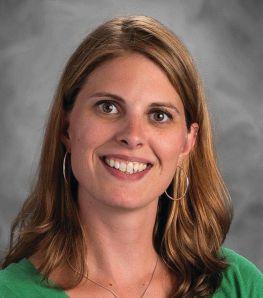
4 minute read
Perspectives: Are Pro ciency Based
P E R S P E C T I V E S Are Pro ciency Based Diplomas realistic for ALL students?
YES
Is a “traditionally-earned” diploma realistic for all students? A profi ciency-based diploma is realistic for more students, and is a reliable certifi cation of skills. A diploma earned without demonstrated profi ciency is empty currency. To create communities that value education, we must ensure that the education provided carries transferrable value. Simply put, profi ciency-based learning is best practice, minus unfair penalties, plus clarifi ed reporting. This equation serves to better inform instruction, encourage a growth mindset, and facilitate success for all students, including those at risk of dropping out.
Within a traditional system, dissonant criteria are confl ated inside 100 points. Content mastery, work completion and attitude are blended into a single, blurry measure. This aff ects both the discouraged, determined student, whose grit does not translate into discernable growth, and the student who is disengaged because the curriculum is too easy, thus boring. Both of these students—not unusual cases—are at risk of dropping out. A profi ciency-based model, with content and behavior reported separately, crafts a transparent narrative of classroom activity: skills mastered, scaff olding needed, opportunities for deep thinking and higher-order challenges. Students are praised for behavior without praise obscuring academic progress. The fear of failure is dissolved as intellectual risks are condoned through formative assessment.
“Traditional” systems often include unfair grading policies that alienate many students. Those who fall behind due to authentic personal challenges may resign to the reality that credit is unrealistic. A bad fi rst quarter paired with an impeccable second quarter is not always enough to salvage a GPA. These students tend to quit. Strict late or missing work policies that lower grades and limit retakes do not teach authentic lessons in responsibility. Flexibility and revision opportunities do not decrease initiative: habits of work hold students accountable for selfadvocacy and work ethic. It is better to model compassion and reward perseverance than reinforce that hurdles always derail hard work.
What a diploma represents, how it is earned, and mechanisms that ensure an equitable education for all—including ELL and special education students—are not new questions borne from the PBE transition. The takeaway is that the profi ciency-based model crafts a learning environment where a high school diploma is realistic for more students— including those historically at risk of dropping out. More importantly, the paper currency of a profi ciency-based diploma has a reserve of academic and social skills—the gold bullion of demonstrated mastery—to back it up.
rebecca redman, Lewiston EA
10 Maine Educator • January 2015
NO

The Profi ciency Based Learning caused some of my Special Education Students to shut down. As a math teacher, I feel with this system in place I am causing more harm than good. My Special Education Students’ growth is being retarded because they know they can't achieve the Standards and I am not given the tools to help them. Some Special Education Students will succeed with the additional support from Special Education staff , 21st Century and Special Flex classes but not all. Most of LHS Special Education students were moved into regular classrooms this year to comply with the Least Restrictive Environment expectations that were imposed by the State of Maine. This initiative has its merit in that it will provide growth for some students. There is always a few that just have not been placed correctly. Students that have a fi rst or third grade reading level or students that have never been in a traditional classroom will not succeed. Now that we have moved to the Profi ciency Based Learning system, there is no way that these children can receive higher than a 1. The children see the 1 constantly on their papers and feel that no matter how much they try, it is never going to be greater than a 1 so why should they even try. So therefore they shut down and become discipline problems in the class. I have tried to be an advocate for these children. Their parents for any number of reasons are not advocating for them, so I feel that I must. It has taken me since October 10th to get the “powers that be” to schedule IEP meetings on two of my students. It is like hitting my head against a wall. Even when I went to two School Board meetings to talk about this, the IEP meetings are slow in the planning. Something has to be put in place for these low level Special Education Students whose needs are not being met with the existing Profi ciency Based Learning System. They are not going to pass the rigorous summative assessments and therefore will not meet the Standards. I hate to think that these students will age out of school before they can complete the Standards. The Special Education students need to be put into a setting where they will see some success. Will they not get some kind of diploma or certifi cate of attendance? Without changes, the current Profi ciency Based Learning System fails a signifi cant amount of students and is simply another mandate that cannot be fulfi lled.










